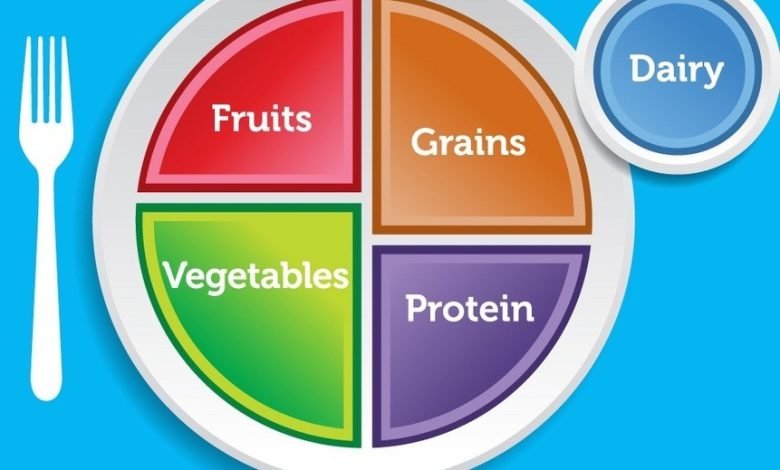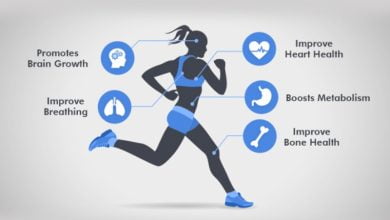Mastering Nutrition and Diet Planning: A Comprehensive Guide to Optimal Health

Introduction:
Nutrition plays a fundamental role in our overall health and well-being, serving as the foundation for optimal physical and mental function. However, with the abundance of dietary information available today, navigating the realm of nutrition and diet planning can be overwhelming. In this extensive exploration, we delve into the principles of nutrition, the importance of balanced eating, and practical strategies for creating personalized diet plans that support long-term health and vitality.
Understanding Nutrition:
Nutrition is the science of how food and nutrients affect our bodies’ growth, development, and maintenance. It encompasses the study of macronutrients (carbohydrates, proteins, and fats), micronutrients (vitamins and minerals), and other bioactive compounds found in food.
Each nutrient serves specific functions in the body, contributing to processes such as energy production, tissue repair, immune function, and hormone regulation. Achieving optimal nutrition involves consuming a balanced diet that provides the necessary nutrients in the right proportions to support overall health and well-being.
The Importance of Balanced Eating:
Balanced eating involves consuming a variety of nutrient-dense foods from all the major food groups in appropriate proportions. A balanced diet should include:
Fruits and Vegetables:
Rich sources of vitamins, minerals, antioxidants, and fiber, fruits and vegetables play a crucial role in supporting immune function, reducing inflammation, and promoting digestive health.
Whole Grains:
Whole grains provide complex carbohydrates, fiber, and essential nutrients such as B vitamins and iron. Incorporating whole grains into the diet can help stabilize blood sugar levels, promote satiety, and reduce the risk of chronic diseases such as heart disease and type 2 diabetes.
Lean Proteins:
Protein is essential for muscle repair and growth, immune function, and hormone production. Lean protein sources such as poultry, fish, tofu, legumes, and low-fat dairy products are rich in essential amino acids and provide important nutrients with minimal saturated fat and cholesterol.
Healthy Fats:
Healthy fats, such as those found in avocados, nuts, seeds, and olive oil, are important for brain health, hormone production, and nutrient absorption. Incorporating healthy fats into the diet can help reduce inflammation, support cardiovascular health, and promote satiety.
Dairy or Dairy Alternatives:
Dairy products are rich sources of calcium, vitamin D, and protein, which are essential for bone health, muscle function, and overall well-being. For those who are lactose intolerant or prefer plant-based options, dairy alternatives such as almond milk, soy milk, and coconut yogurt can provide similar nutrients.
Practical Strategies for Diet Planning:
Creating a personalized diet plan that aligns with individual goals, preferences, and nutritional needs requires careful consideration and planning. Here are some practical strategies for effective diet planning:
Set Specific Goals:
Define clear, achievable goals that are tailored to your individual needs, whether it’s improving overall health, managing weight, increasing energy levels, or supporting athletic performance.
Assess Current Eating Habits:
Take stock of your current eating habits, including the types of foods you eat, portion sizes, meal timing, and frequency of meals and snacks. Identifying areas for improvement can help inform your diet planning efforts.
Calculate Nutritional Needs:
Determine your calorie and macronutrient needs based on factors such as age, gender, weight, activity level, and health goals. Online calculators, nutrition apps, or consultation with a registered dietitian can help you determine your nutritional needs.
Plan Balanced Meals:
Create a meal plan that includes a variety of nutrient-dense foods from all the major food groups. Aim for balanced meals that include a source of protein, carbohydrates, healthy fats, fruits, and vegetables.
Practice Portion Control:
Pay attention to portion sizes and practice mindful eating to prevent overeating and promote satiety. Use visual cues, such as the size of your palm or a deck of cards, to estimate appropriate portion sizes.
Monitor Progress and Adjust as Needed:
Keep track of your progress towards your goals and make adjustments to your diet plan as needed. Pay attention to how your body responds to different foods and adjust your diet accordingly.
Real-Life Examples of Successful Nutrition and Diet Planning:
Numerous examples exist of individuals who have successfully improved their health and well-being through effective nutrition and diet planning:
Weight Loss Success Stories:
Individuals who have achieved significant weight loss and improved metabolic health through balanced eating, portion control, and regular physical activity.
Sports Nutrition:
Athletes who have optimized their performance and recovery through personalized nutrition plans tailored to their specific energy and nutrient needs.
Disease Management:
Individuals who have successfully managed chronic diseases such as diabetes, hypertension, and heart disease through dietary modifications and lifestyle changes.
Gut Health Improvement:
Individuals who have improved digestive health and reduced symptoms of gastrointestinal disorders through dietary modifications such as increasing fiber intake, reducing processed foods, and incorporating probiotic-rich foods.
Conclusion:
In conclusion, mastering nutrition and diet planning is essential for achieving optimal health and well-being. By understanding the principles of nutrition, embracing balanced eating habits, and implementing practical strategies for diet planning, individuals can create personalized nutrition plans that support their goals and promote long-term health and vitality. As we continue to prioritize health and wellness in our lives, let us harness the power of nutrition to nourish our bodies, fuel our lives, and thrive in every aspect of our well-being.
Unlocking the Power of Nutrition: A Comprehensive Guide to Understanding the Science of Eating Well
Introduction:
Nutrition is the cornerstone of health, influencing every aspect of our well-being from physical vitality to mental clarity. However, the realm of nutrition is often clouded by myths, fads, and conflicting information. In this in-depth exploration, we embark on a journey to demystify the science of nutrition, uncovering the essential principles, nutrients, and dietary patterns that promote optimal health and longevity.
Foundations of Nutrition Science:
At its core, nutrition science is the study of how food and nutrients impact our bodies’ growth, development, and function. It encompasses the exploration of macronutrients (carbohydrates, proteins, and fats), micronutrients (vitamins and minerals), phytonutrients, and other bioactive compounds found in food.The body requires a diverse array of nutrients to thrive, each playing a unique role in supporting various physiological processes. Carbohydrates serve as the primary source of energy, proteins are essential for tissue repair and synthesis, fats provide energy and support cellular function, while vitamins and minerals act as cofactors in enzymatic reactions and metabolic processes.
Understanding Macronutrients:
Carbohydrates:
Carbohydrates are the body’s primary source of energy, providing fuel for cellular function, physical activity, and metabolic processes. Complex carbohydrates, found in whole grains, fruits, vegetables, and legumes, provide sustained energy and essential nutrients such as fiber, vitamins, and minerals. Simple carbohydrates, found in refined grains, sugars, and processed foods, can lead to rapid spikes and crashes in blood sugar levels and should be consumed in moderation.
Proteins:
Proteins are the building blocks of the body, essential for the repair, maintenance, and growth of tissues such as muscles, bones, and organs. Complete proteins, found in animal products such as meat, poultry, fish, eggs, and dairy, contain all nine essential amino acids necessary for human health. Plant-based sources of protein, such as beans, lentils, tofu, tempeh, and quinoa, can provide adequate protein when consumed in combination to ensure all essential amino acids are met.
Fats:
Fats play a crucial role in cellular function, hormone production, brain health, and nutrient absorption. Unsaturated fats, found in foods such as nuts, seeds, avocados, and olive oil, are considered heart-healthy and should be prioritized in the diet. Saturated fats, found in animal products and some plant-based oils, should be consumed in moderation, while trans fats, found in processed and fried foods, should be minimized due to their negative impact on heart health.
Micronutrients: Essential for Health and Vitality:
In addition to macronutrients, the body requires a variety of vitamins and minerals to support essential functions and maintain optimal health. Micronutrients act as cofactors in enzymatic reactions, support immune function, and play key roles in processes such as energy production, bone health, and antioxidant defense.
Vitamins:
Vitamins are organic compounds that the body requires in small amounts for various physiological processes. They are categorized as water-soluble vitamins (B vitamins and vitamin C) and fat-soluble vitamins (vitamins A, D, E, and K). Each vitamin serves specific functions in the body, such as energy metabolism (B vitamins), immune function (vitamin C), vision (vitamin A), and bone health (vitamin D).
Minerals:
Minerals are inorganic compounds that the body requires for structural support, fluid balance, nerve function, and enzymatic reactions. They are categorized as macrominerals (such as calcium, magnesium, phosphorus, sodium, and potassium) and trace minerals (such as iron, zinc, copper, selenium, and iodine). Each mineral plays a critical role in maintaining health and vitality, with deficiencies or imbalances leading to a range of health issues.
Phytonutrients and Bioactive Compounds:
In addition to essential nutrients, plant-based foods contain a diverse array of phytonutrients and bioactive compounds that contribute to their health-promoting properties. These compounds, such as polyphenols, flavonoids, carotenoids, and phytochemicals, have antioxidant, anti-inflammatory, and disease-fighting properties that support overall health and longevity.
Practical Applications of Nutrition Science:
Applying the principles of nutrition science to everyday life involves making informed food choices, adopting healthy eating patterns, and prioritizing nutrient-dense foods. Some practical strategies for incorporating optimal nutrition into daily life include:
Prioritize Whole Foods:
Choose whole, minimally processed foods whenever possible, including a variety of fruits, vegetables, whole grains, lean proteins, and healthy fats.
Practice Portion Control:
Pay attention to portion sizes and practice mindful eating to prevent overeating and promote satiety.
Diversify Your Plate:
Aim to include a variety of colors, flavors, and textures in your meals to ensure a diverse array of nutrients.
Hydrate Adequately:
Drink plenty of water throughout the day to support hydration, digestion, and overall health.
Limit Added Sugars and Processed Foods:
Minimize consumption of foods and beverages high in added sugars, refined grains, and unhealthy fats, as these can contribute to poor health outcomes.
Seek Professional Guidance:
Consult with a registered dietitian or nutritionist for personalized nutrition advice and guidance tailored to your individual needs and goals.
Conclusion:
In conclusion, understanding the science of nutrition is essential for promoting optimal health and well-being. By prioritizing nutrient-dense foods, adopting healthy eating patterns, and making informed food choices, individuals can harness the power of nutrition to support vitality, longevity, and overall quality of life. As we continue to navigate the complexities of modern life, let us embrace the transformative potential of nutrition to nourish our bodies, fuel our lives, and thrive in every aspect of our well-being.
Foundations of Nutrition Science: Exploring the Building Blocks of Health and Wellness
Introduction:
Nutrition science forms the bedrock of our understanding of how food and nutrients impact our bodies’ functioning and overall well-being. It encompasses the study of macronutrients, micronutrients, phytonutrients, and bioactive compounds found in foods, as well as their effects on health outcomes. In this comprehensive exploration, we delve into the foundations of nutrition science, examining the essential components of a healthy diet, the role of nutrients in supporting physiological processes, and practical applications for promoting optimal health and wellness.
Macronutrients: The Fuel for Life:
Macronutrients are the primary components of our diet, providing the energy and building blocks necessary for growth, repair, and metabolic processes. There are three main types of macronutrients:
Carbohydrates:
Carbohydrates are the body’s primary source of energy, providing fuel for cellular function and physical activity. They are found in foods such as grains, fruits, vegetables, legumes, and dairy products. Carbohydrates can be classified as simple carbohydrates (sugars) or complex carbohydrates (starches and fiber), with complex carbohydrates offering sustained energy and essential nutrients such as fiber, vitamins, and minerals.
Proteins:
Proteins are essential for building and repairing tissues, synthesizing hormones and enzymes, and supporting immune function. They are composed of amino acids, which are often referred to as the “building blocks” of proteins. Complete proteins, found in animal products such as meat, poultry, fish, eggs, and dairy, contain all nine essential amino acids necessary for human health. Plant-based sources of protein, such as beans, lentils, tofu, tempeh, and quinoa, can provide adequate protein when consumed in combination to ensure all essential amino acids are met.
Fats:
Fats are essential for cell structure, hormone production, brain health, and nutrient absorption. They provide a concentrated source of energy and support the absorption of fat-soluble vitamins such as vitamins A, D, E, and K. Healthy fats, such as monounsaturated and polyunsaturated fats found in foods like nuts, seeds, avocados, and olive oil, are beneficial for heart health and should be prioritized in the diet. Saturated fats, found in animal products and some plant-based oils, should be consumed in moderation, while trans fats, found in processed and fried foods, should be avoided due to their negative impact on heart health.
Micronutrients: Essential for Vitality:
Micronutrients are vitamins and minerals that the body requires in small amounts to support various physiological processes and maintain health. They act as cofactors in enzymatic reactions, support immune function, and play key roles in processes such as energy production, bone health, and antioxidant defense. Micronutrients can be categorized as:
Vitamins:
Vitamins are organic compounds that play essential roles in metabolism, growth, and development. They are classified as water-soluble vitamins (such as vitamin C and the B vitamins) or fat-soluble vitamins (such as vitamins A, D, E, and K). Each vitamin serves specific functions in the body, such as antioxidant defense (vitamin C), bone health (vitamin D), vision (vitamin A), and energy metabolism (B vitamins).
Minerals:
Minerals are inorganic compounds that play structural, regulatory, and metabolic roles in the body. They are classified as macrominerals (such as calcium, magnesium, phosphorus, sodium, and potassium) or trace minerals (such as iron, zinc, copper, selenium, and iodine). Each mineral is essential for maintaining health and vitality, with deficiencies or imbalances leading to a range of health issues.
Phytonutrients and Bioactive Compounds:
In addition to essential nutrients, plant-based foods contain a diverse array of phytonutrients and bioactive compounds that contribute to their health-promoting properties. These compounds, such as polyphenols, flavonoids, carotenoids, and phytochemicals, have antioxidant, anti-inflammatory, and disease-fighting properties that support overall health and longevity. Phytonutrients are found in fruits, vegetables, whole grains, nuts, seeds, herbs, and spices, and consuming a diverse array of plant foods can provide a wide range of health benefits.
Practical Applications of Nutrition Science:
Applying the principles of nutrition science to everyday life involves making informed food choices, adopting healthy eating patterns, and prioritizing nutrient-dense foods. Some practical strategies for incorporating optimal nutrition into daily life include:
Prioritize Whole Foods:
Choose whole, minimally processed foods whenever possible, including a variety of fruits, vegetables, whole grains, lean proteins, and healthy fats.
Practice Portion Control:
Pay attention to portion sizes and practice mindful eating to prevent overeating and promote satiety.
Diversify Your Plate:
Aim to include a variety of colors, flavors, and textures in your meals to ensure a diverse array of nutrients.
Hydrate Adequately:
Drink plenty of water throughout the day to support hydration, digestion, and overall health.
Limit Added Sugars and Processed Foods:
Minimize consumption of foods and beverages high in added sugars, refined grains, and unhealthy fats, as these can contribute to poor health outcomes.
Seek Professional Guidance:
Consult with a registered dietitian or nutritionist for personalized nutrition advice and guidance tailored to your individual needs and goals.
Conclusion:
In conclusion, the foundations of nutrition science provide a framework for understanding the essential components of a healthy diet and their role in supporting overall health and wellness. By prioritizing nutrient-dense foods, adopting healthy eating patterns, and making informed food choices, individuals can harness the power of nutrition to promote vitality, longevity, and optimal well-being. As we continue to navigate the complexities of modern life, let us embrace the transformative potential of nutrition to nourish our bodies, fuel our lives, and thrive in every aspect of our health and happiness.
Micronutrients: Essential for Health and Vitality:
In the realm of nutrition, there exists a category of nutrients often overlooked in discussions about dietary health and wellness: micronutrients. While macronutrients like carbohydrates, proteins, and fats tend to steal the spotlight, it’s the micronutrients – those required in smaller quantities – that play equally vital roles in maintaining optimal health and vitality. Micronutrients encompass a range of vitamins and minerals that are indispensable for various physiological functions within the human body. Understanding their significance is crucial for achieving overall well-being and preventing nutritional deficiencies.
Vitamins: Nature’s Essential Helpers:
Vitamins are organic compounds that the body requires in small amounts to function properly. They play diverse roles in metabolism, immunity, growth, and development. There are two main types of vitamins: fat-soluble and water-soluble.Fat-soluble vitamins include vitamins A, D, E, and K. These vitamins are absorbed through the intestinal tract with the help of fats and are stored in the liver and fatty tissues for future use. Vitamin A is crucial for vision, immune function, and skin health. Vitamin D is essential for calcium absorption and bone health. Vitamin E acts as an antioxidant, protecting cells from damage caused by free radicals. Vitamin K is necessary for blood clotting and bone metabolism.Water-soluble vitamins comprise the B-complex vitamins (such as B1, B2, B3, B5, B6, B7, B9, and B12) and vitamin C. These vitamins are not stored in the body to a significant extent and are excreted in the urine, necessitating regular intake through diet. The B-complex vitamins are involved in energy production, nerve function, and red blood cell formation, among other functions. Vitamin C, also known as ascorbic acid, is renowned for its antioxidant properties and its role in collagen synthesis, wound healing, and immune function.
Minerals: The Building Blocks of Health:
Minerals are inorganic elements required by the body in small quantities for various physiological processes. They are classified into two categories: major minerals and trace minerals.Major minerals include calcium, phosphorus, magnesium, sodium, potassium, chloride, and sulfur. These minerals are needed in larger amounts and play fundamental roles in bone health, muscle function, fluid balance, and nerve transmission. For instance, calcium and phosphorus are essential for bone mineralization and teeth strength, while potassium and sodium regulate fluid balance and maintain blood pressure.Trace minerals, also known as microminerals, include iron, zinc, copper, selenium, iodine, manganese, fluoride, and chromium, among others. Despite being required in smaller quantities, these minerals are indispensable for various physiological functions. Iron is vital for oxygen transport and energy metabolism, while zinc is involved in immune function, wound healing, and DNA synthesis. Copper plays a role in iron metabolism and antioxidant defense mechanisms, while selenium is essential for thyroid function and antioxidant enzyme activity.
The Importance of Micronutrients for Health and Vitality:
Micronutrients are essential for maintaining overall health and vitality due to their involvement in numerous physiological processes. They act as cofactors for enzymes, which are essential for biochemical reactions in the body. For example, vitamins and minerals facilitate energy production, DNA synthesis, hormone regulation, and nerve signaling, among other functions. Additionally, micronutrients play crucial roles in supporting immune function, protecting against oxidative stress, and promoting optimal growth and development.Deficiencies in micronutrients can lead to a myriad of health problems, ranging from mild symptoms to severe complications. For instance, vitamin A deficiency can cause night blindness and impair immune function, while vitamin D deficiency is associated with rickets in children and osteomalacia in adults. Iron deficiency anemia, resulting from inadequate intake or absorption of iron, can lead to fatigue, weakness, and impaired cognitive function. Furthermore, inadequate intake of micronutrients during pregnancy and early childhood can have long-lasting consequences on growth, development, and cognitive function.
Meeting Micronutrient Needs Through Diet:
Achieving adequate intake of micronutrients is essential for maintaining optimal health and vitality. While many micronutrients can be obtained through a well-balanced diet, certain factors such as poor dietary choices, food processing, soil depletion, and specific medical conditions may increase the risk of micronutrient deficiencies. In such cases, dietary supplements may be recommended to meet individual nutrient requirements.A diet rich in fruits, vegetables, whole grains, lean proteins, and dairy products can provide a wide array of vitamins and minerals necessary for good health. Consuming a diverse range of nutrient-dense foods ensures adequate intake of essential micronutrients. Additionally, food fortification and supplementation programs have been implemented to address specific nutrient deficiencies in populations at risk.
Conclusion:
Micronutrients are indispensable for maintaining overall health and vitality. Vitamins and minerals play diverse roles in metabolism, immunity, growth, and development, and deficiencies can lead to a myriad of health problems. Achieving adequate intake of micronutrients through a well-balanced diet is essential for supporting optimal health and preventing nutritional deficiencies. By understanding the significance of micronutrients and making informed dietary choices, individuals can promote their well-being and enhance their quality of life.




